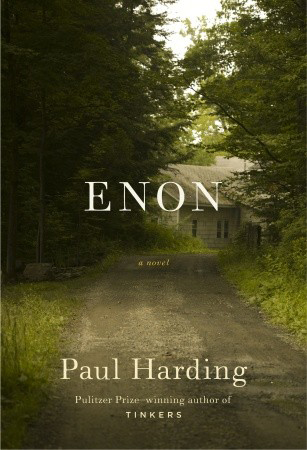
Time and death are the grand subjects of Paul Harding’s intimate new novel, “Enon.” Harding, a former Harvard University professor and drummer of ’90s grunge band Cold Water Flat, is best known for his other book, “Tinkers.” That novel told the story of George Washington Crosby, an epilepsy-afflicted clock repairman in a small New England town. “Enon,” named after that town, tells the story of Crosby’s grandson, Charlie.
Time heals all wounds, but are some wounds so terrible that only time can heal them? Charlie Crosby experiences such a calamity; his daughter Kate is riding a bike, a car hits her and she dies. Charlie’s wife leaves him, the nexus of their marriage under the wheels of a minivan. He breaks his hand in a fit of anger, purposefully becomes addicted to painkillers, then other drugs and loses any semblance of a functional life. In the space of days, Charlie’s life is devastated. As he narrates, “Most men in my family make widows of their wives and orphans of their children. I am the exception.”
Needless to say, “Enon” is not a cheerful novel. But it is a beautiful one. Harding illuminates Charlie’s ravaged inner life without bogging down the slim book in a quagmire of depressing scenes. The town of Enon and its inhabitants are described with vivid color, literally. Charlie reads, “The topology of Enon with my fingertips like Braille, tracing brown hills, aqua swamps, curved blue lattices of streams and rivers, the bright moss green of its meadows.”
Time is Charlie’s key to recovering his tragedies, but people fading from memory means that important things are lost. Charlie, an only child and the last in his family line, is unlikely to marry. In the framework of his daughter’s death, then, one realizes that with Charlie’s death will come a greater eventual tragedy – the Crosby line will be forgotten forever.
“After the accident, ghosts surrounded me. My whole family made a circumference of ghosts, with me the sole living member in the middle,” Harding writes.
“Enon” is not a tightly structured, plot-driven novel. Chapters drift between Charlie’s struggles and his memories of Kate’s childhood and his own. The story and structure beg comparison to “American Pastoral,” Philip Roth’s novel about a New England father who loses his child, leading to divorce and ruin. Roth’s novel keeps the reader compulsively turning pages with humor and hints of the daughter’s possible return. It pushes the tragedy to an understanding that the world is absurd and uncaring, that life is one big joke on humanity. “Enon” thoughtfully uses the tragedy to examine how it affects life on the inside, but when it explores the meaning on a grander scale, the emotional spectrum is narrowed to reverent solemnity. When Charlie moves on with his life, we’re not quite convinced that he’s gotten past grief, and we’re not quite sure that Harding knows how to describe such a state.


